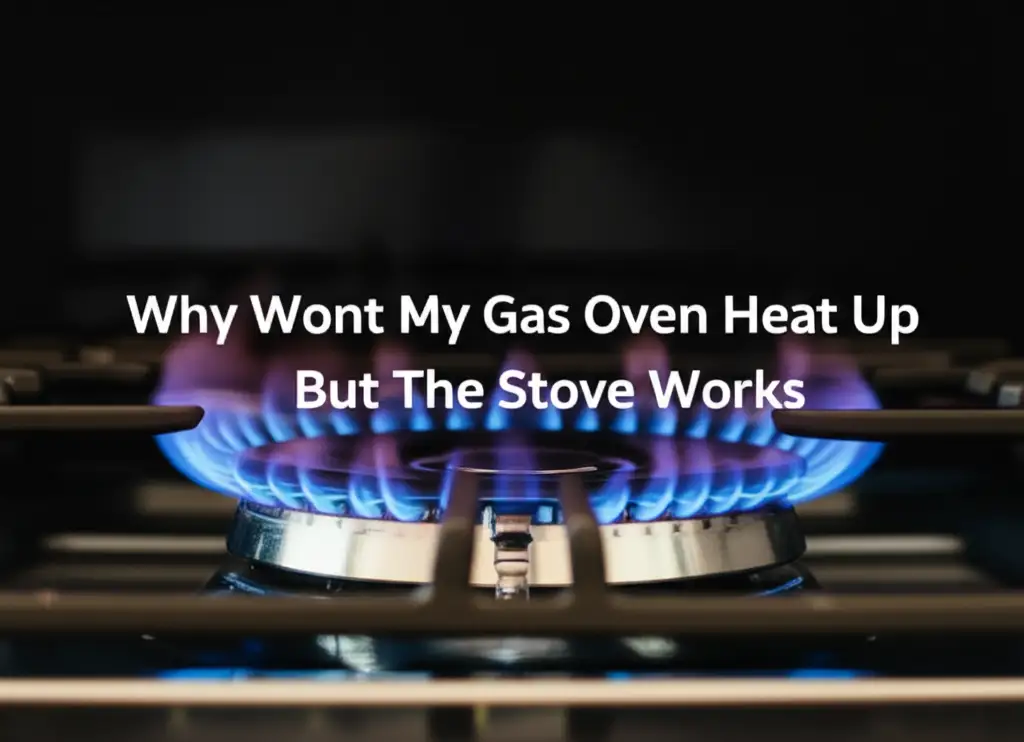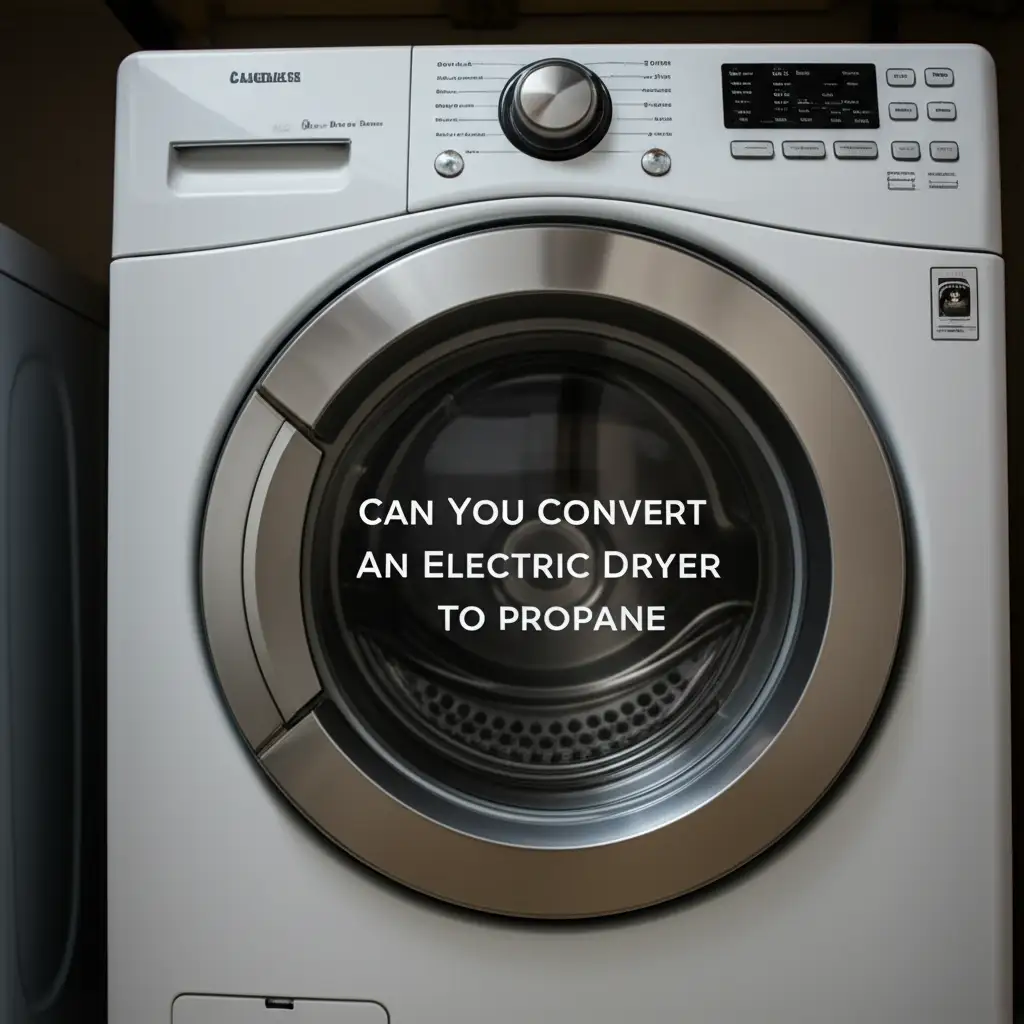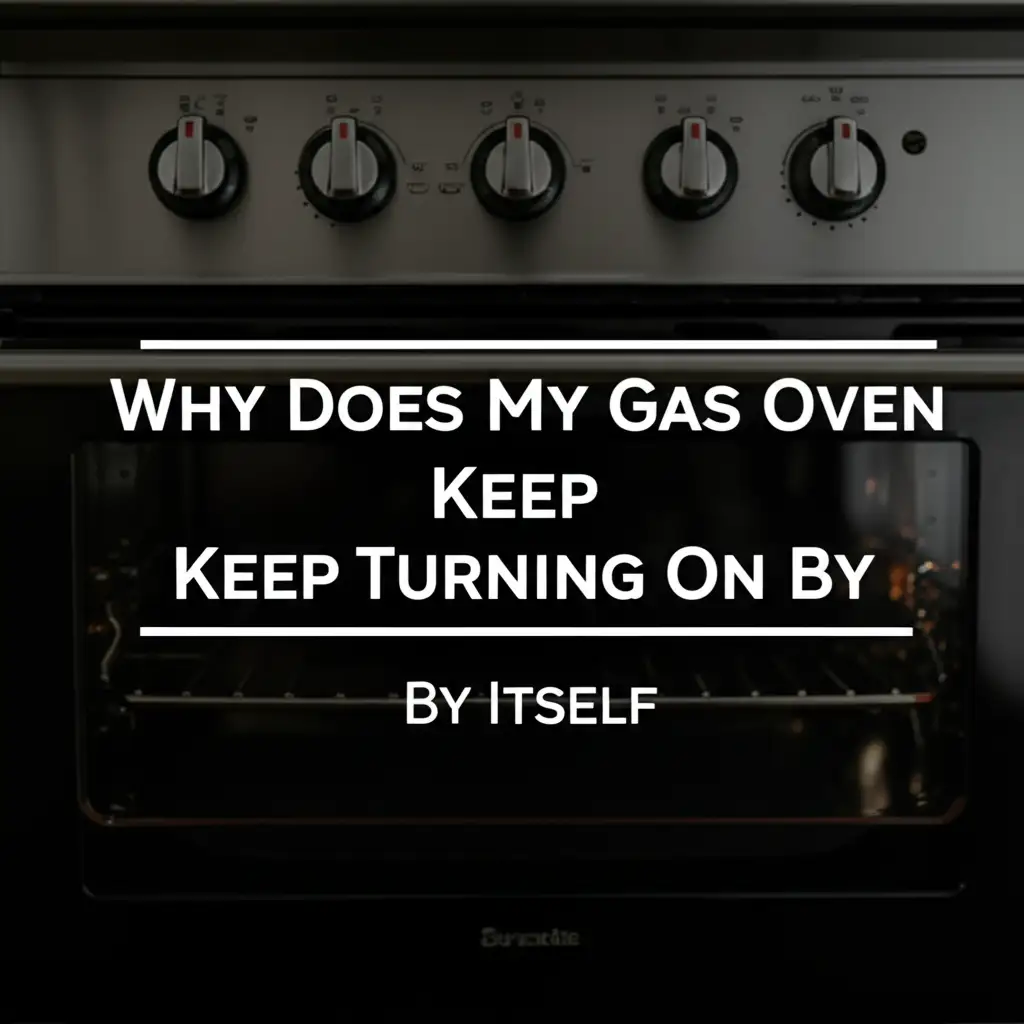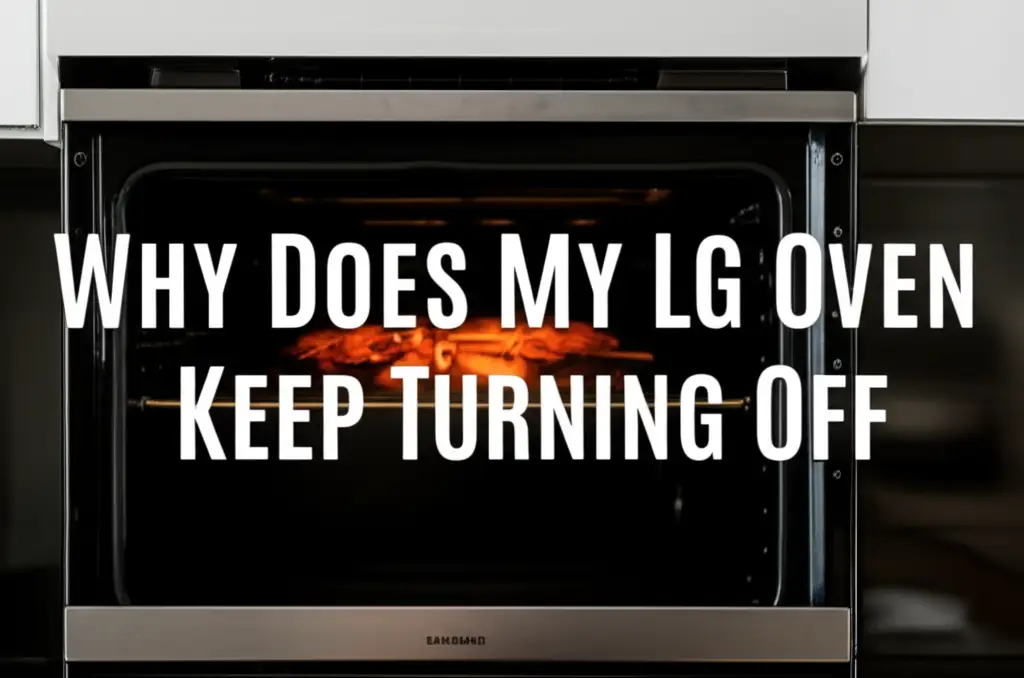· Katria Melrose · Home Appliances · 15 min read
Why Does My Gas Oven Go Out When I Close The Door
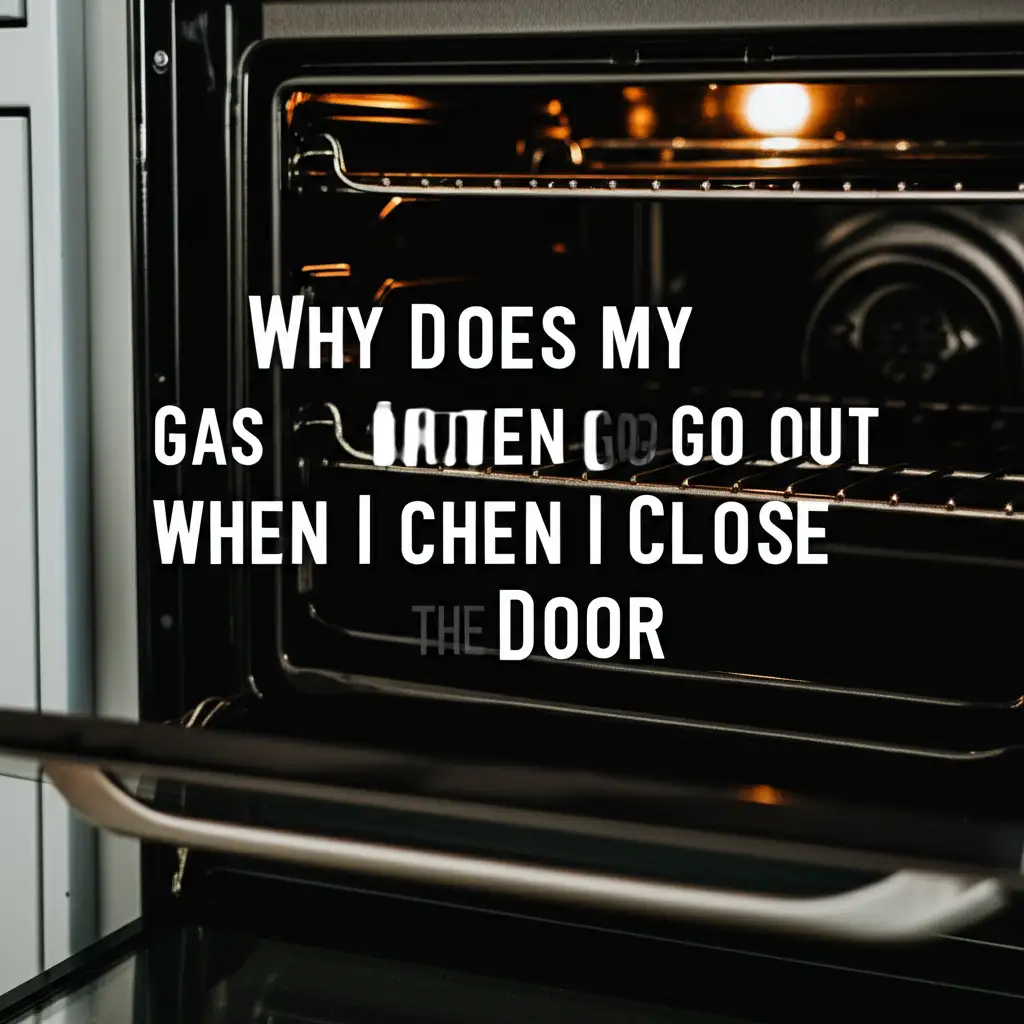
Gas Oven Flame Goes Out? Fix It When You Close the Door
Imagine preparing a delicious meal. You preheat your gas oven, slide in the dish, and gently close the door. Then, you notice the flame extinguishes. This problem, “why does my gas oven go out when I close the door,” is frustrating. It also raises safety questions. You need your oven to work right.
This issue is common for gas oven owners. The flame should stay lit, keeping your food cooking. When it goes out, it means something is wrong. This article will explain the common reasons your gas oven flame goes out when you close the door. We will cover issues from safety sensors to airflow. We will also give you steps to troubleshoot the problem. You will learn what you can fix yourself and when to get help. Let us make sure your oven works safely again.
Takeaway
- Check Ventilation: Ensure proper airflow inside and around the oven.
- Inspect Thermocouple: Clean or replace this key safety sensor.
- Examine Igniter: Look for a faulty igniter that struggles to maintain flame.
- Verify Gas Supply: Confirm steady gas pressure to the oven.
- Consider Professional Help: Call an expert for complex or unsafe issues.
Why does my gas oven go out when I close the door?
Your gas oven goes out when you close the door due to issues like a faulty thermocouple or igniter. It can also happen from restricted airflow, low gas pressure, or problems with the safety valve. These issues disrupt the flame’s ability to stay lit, often related to changes in internal oven conditions.
Understanding How Your Gas Oven Works
Before we fix a problem, we need to know how the oven functions. Gas ovens use natural gas or propane to create heat. This gas flows to a burner inside the oven cavity. An igniter then lights this gas.
A flame sensor, usually a thermocouple, checks if the flame is present. If the sensor does not detect a flame, it tells the gas valve to shut off. This prevents gas from filling your kitchen. This safety feature keeps you and your home safe. When you close the oven door, conditions inside the oven change. Airflow, pressure, and temperature shift. Sometimes these changes reveal a weakness in the oven system.
The oven needs a constant supply of oxygen to keep the flame burning. It also needs a clear path for exhaust gases to leave. Any block in these paths can cause the flame to go out. The door closing can highlight these ventilation problems.
Common Reasons Your Gas Oven Flame Dies
Many things can cause your gas oven flame to go out when the door closes. It is important to check each one. We will explore the most frequent causes. Knowing these helps you find the right solution. Do not skip any check.
One main reason is related to airflow. A gas flame needs oxygen to burn. When you close the door, the amount of fresh air changes. If the oven’s design or vents are blocked, the flame cannot get enough oxygen. This causes it to die.
Another common reason is a faulty part. Key parts like the thermocouple or igniter wear out. They may not work right. A weak igniter might light the flame but cannot keep it stable. A faulty thermocouple might stop detecting the flame, even if it is there.
Gas supply is another area to check. Low gas pressure can make the flame weak. A weak flame is easier for changes in the oven to extinguish. We will look at each of these in detail.
The Role of the Thermocouple in Flame Safety
The thermocouple is a small, but very important, safety device. It looks like a thin copper rod. Its job is to detect the flame. When the flame heats the thermocouple, it creates a small electrical current. This current tells the gas valve to stay open.
If the flame goes out, the thermocouple cools down. It stops sending the electrical current. The gas valve then closes. This stops gas from flowing when there is no flame. This prevents gas leaks. When your gas oven goes out when you close the door, a faulty thermocouple is a top suspect.
Sometimes, the thermocouple gets dirty. Food spills or grease can coat it. This layer stops the thermocouple from getting hot enough. It cannot create enough electrical current. This makes the gas valve close, turning off the flame. You can often clean the thermocouple gently with fine-grit sandpaper or steel wool. Ensure the oven is off and cool before you do this.
A thermocouple can also become weak over time. It might be sending a weak signal. This weak signal is not enough to keep the gas valve open, especially with small changes in the oven environment. In this case, you need to replace the thermocouple. This is a simple part to replace for many oven models. If you frequently clean your oven, you might notice this part. Regular cleaning of your gas oven helps keep all components working right.
Igniter Issues: When Ignition Fails
The igniter is the part that lights the gas. Most modern gas ovens use a glow bar igniter. This bar gets hot and glows. The heat ignites the gas. This type of igniter also acts as a flame sensor. It controls the gas valve.
If the igniter is weak, it may not get hot enough. It might light the gas, but the flame will be weak. A weak flame can easily go out when the oven door closes. This happens because closing the door changes the air pressure inside. A healthy flame can withstand this change. A weak one cannot.
You can often see the igniter glow. It should glow bright orange. If it glows dull red or takes a long time to heat up, it is weak. A weak igniter often means it needs replacement. This is a common part that wears out over time. It affects the oven’s ability to maintain a strong flame.
Sometimes, the igniter itself might be cracked or broken. If it is not glowing at all, it is likely broken. A broken igniter means no flame. If it glows but the flame still goes out, it is weak. Replacing the igniter can solve your problem. Always ensure the gas supply is off before working on your oven. Knowing how to use your gas range oven for the first time includes understanding its core parts like the igniter.
Gas Supply and Pressure Problems
For your gas oven to work, it needs a steady and strong gas supply. If the gas pressure is too low, the flame will be weak. A weak flame is very sensitive to any changes in the oven. When you close the door, even a slight change in airflow can snuff out a weak flame.
Several things can cause low gas pressure. Sometimes, it is an issue with your home’s gas line. Other gas appliances running at the same time can also reduce pressure to the oven. For example, if you run a gas dryer and stove top burners while the oven is on, it might strain the gas supply.
The gas regulator on your oven also controls pressure. This part steps down the gas pressure from your home’s line to what the oven needs. If this regulator is faulty, it can send too little gas. This causes a weak flame. You might need a gas professional to check or adjust this part. Do not try to fix gas pressure issues yourself. Gas work requires specific tools and knowledge.
Sometimes, the main gas valve to the oven might not be fully open. Double-check that it is completely in the “on” position. If you suspect an issue with your home’s main gas line or regulator, contact your gas utility company or a licensed plumber. Safety comes first with gas lines. A clean oven can prevent issues, but gas supply is a different matter. You can ensure the interior is clean by following guides on how to clean the inside of your gas oven.
Ventilation and Airflow: A Critical Balance
Gas ovens need proper airflow to maintain a flame. The flame uses oxygen and creates exhaust gases. These exhaust gases must leave the oven cavity. If airflow is poor, the flame does not get enough oxygen. It also gets choked by its own exhaust. When you close the oven door, it changes the internal air pressure and flow. If the oven’s ventilation system is not working right, this change can extinguish the flame.
Vents are usually located at the back or top of the oven. These vents can become blocked. Food spills, grease buildup, or even foil placed incorrectly can cover them. Check these areas for any blockages. Ensure they are clear. Proper ventilation helps maintain the ideal air-to-gas mix for a stable flame.
The oven door seal also plays a role. A loose or damaged door seal can allow too much fresh air in. This can disrupt the delicate balance of air inside. It might also cause drafts that put out the flame. Check your oven door gasket. It should be soft and create a tight seal when the door closes. If it is cracked or torn, you might need to replace it. A healthy seal ensures proper temperature control and flame stability.
Keeping the oven clean helps with airflow. Food debris and grease buildup can restrict internal circulation. This is true for the oven cavity itself and the burner area. Even simple maintenance like keeping your gas stovetop clean contributes to overall appliance health. A clean oven runs better.
Safety Valves and Sensors: Malfunctions to Watch For
Modern gas ovens have many safety features. These features stop gas flow if something goes wrong. Beyond the thermocouple, other safety valves and sensors exist. These parts ensure the oven operates safely. If one of these parts malfunctions, it can cause the flame to go out.
One such part is the oven safety valve. This valve controls the gas flow to the burner. It works with the igniter and thermocouple. If the igniter does not get hot enough, or if the thermocouple fails to send a signal, this safety valve stays closed. It prevents gas from flowing. A faulty safety valve might close too easily. It might close even when conditions are right. This can cause the flame to extinguish when the door closes.
Some ovens also have limit switches or other sensors. These sensors monitor temperature or other conditions. If a sensor detects an unsafe condition, it can shut off the gas. For example, if it senses too much heat in the wrong area, it might cut power. A faulty sensor could send a wrong signal. This wrong signal could cause the oven to shut down.
Problems with these parts are harder to diagnose at home. They often need a multimeter to test their function. If you have checked the thermocouple, igniter, and airflow, these internal safety parts are the next likely culprits. Replacing these parts often requires taking apart more of the oven. It is best to call a qualified appliance technician for these repairs. They have the right tools and knowledge to fix these safety components.
Troubleshooting Steps You Can Do
When your gas oven goes out when you close the door, you can take some steps. You can check these things yourself. They might solve the problem. Always turn off the gas and power to the oven before you start.
- Check for Blocked Vents: Look at the back and top of your oven. Make sure no foil, pans, or food debris block the vents. Clear any blockages you find. This helps air move freely.
- Inspect the Thermocouple: Locate the thermocouple near the burner flame. It is a thin metal rod. Gently clean it with a fine-grit sandpaper or a soft cloth. Remove any carbon or food buildup. Make sure it points directly into the flame when lit.
- Observe the Igniter: Turn on the oven and watch the igniter. It should glow bright orange within a minute. If it is dull red or takes a long time, it is likely weak. A weak igniter needs replacement.
- Listen for Gas Flow: When you turn on the oven, listen for the sound of gas. You should hear a hiss before ignition. If you hear no sound, or a very faint sound, gas pressure might be low. This could mean a partially closed gas valve or a supply issue.
- Check the Oven Door Seal: Look at the gasket around the oven door. It should be soft and intact. If it is stiff, cracked, or torn, it can affect airflow. A damaged seal might need replacement. Cleaning the glass on the oven door will not affect the seal directly, but general door maintenance helps. Knowing how to clean the glass on your oven door ensures the door is in good shape.
- Reset the Oven: Sometimes, a simple reset can clear a minor glitch. Unplug the oven or turn off its circuit breaker for a few minutes. Then, plug it back in or turn the power on.
These steps can help you pinpoint the issue. If the problem continues, you might need a professional. Do not try to fix complex gas issues on your own.
When to Call a Professional for Oven Repair
While many issues can be fixed at home, some problems need a professional. Gas appliances require specific knowledge and safety precautions. If you are unsure about any step, call an expert. Your safety is most important.
You should call a professional if:
- You smell gas: This is a serious safety concern. Turn off the gas supply, ventilate the area, and leave the house. Call your gas company and a technician immediately.
- You cannot identify the problem: If you have tried basic troubleshooting and the oven still goes out, the issue might be deeper. It could be a faulty gas valve, regulator, or control board.
- The repair involves gas lines: Do not attempt to fix gas lines yourself. This includes replacing gas valves or gas regulators. These jobs need a licensed professional.
- You lack the right tools: Some tests require a multimeter. Some parts need specific tools for removal or installation. If you do not have them, a technician does.
- The problem is intermittent: If the oven works sometimes but not others, it can be a sign of a failing component. This can be hard to diagnose without experience.
- You are uncomfortable with the repair: If you do not feel safe or confident performing the repair, stop. Get help from an expert.
A qualified appliance technician has the tools and training to diagnose and fix gas oven problems safely. They can quickly identify faulty parts. They ensure all repairs meet safety standards. It is an investment in your home’s safety and your oven’s lifespan.
Frequently Asked Questions
Is it safe if my gas oven goes out?
No, it is not safe if your gas oven goes out while in use. The oven’s safety system should detect this and stop gas flow. If you smell gas, turn off the main gas supply and ventilate your home. Get professional help immediately to ensure safety and fix the issue.
Can I fix a gas oven that goes out when I close the door myself?
You can perform basic troubleshooting steps. These include checking for blocked vents, cleaning the thermocouple, or observing the igniter’s glow. However, any issues involving gas lines, gas pressure, or complex internal components require a professional. Safety is always the top priority.
How often should I clean my oven to prevent this?
Regular oven cleaning can help prevent airflow issues and keep parts like the thermocouple clean. Clean your oven’s interior every 3-6 months, or more often with heavy use. This prevents grease and food buildup that can affect performance and flame stability.
What is a thermocouple and why is it important?
A thermocouple is a safety device in gas ovens. It senses if a flame is present. If it does not detect a flame, it shuts off the gas supply. This prevents gas leaks. A faulty or dirty thermocouple is a common reason why your oven flame might go out.
Why would closing the door affect the flame?
Closing the oven door changes internal air pressure and airflow. If the oven has poor ventilation, a weak igniter, low gas pressure, or a faulty thermocouple, these changes can disrupt the flame. The flame needs a stable oxygen supply and exhaust path to stay lit.
Conclusion
When your gas oven goes out when you close the door, it points to a problem. This issue can be annoying, but it also signals a potential safety concern. We explored common causes, from a dirty thermocouple to a weak igniter or poor airflow. Each part plays a vital role in keeping your oven flame burning steadily.
You now understand the importance of ventilation and gas pressure. You also know how crucial safety components are. Remember to check for blocked vents, clean your thermocouple, and observe your igniter’s glow. These simple steps can often solve the problem. If you feel uncomfortable, or if the issue seems to involve gas lines, always call a professional. Ensuring your gas oven works safely is key for your peace of mind and home safety. Take action today to make sure your oven functions as it should.
- Gas Oven Repair
- Oven Troubleshooting
- Appliance Safety
- Thermocouple
- Oven Maintenance


